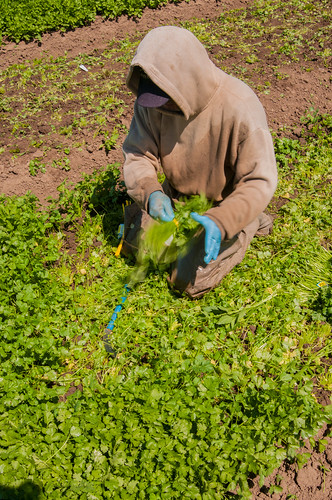Organic gardening can be an every day part of your life, but knowing about them and purchasing the proper equipment can be difficult. You also have a large variety of seeds you can select from. The following tips below will help you get started in growing an amazing organic garden.
Using aspirin and water will help your plants fight diseases. Dissolve 1 aspirin per gallon of water for a bucket and administer to your plants. You simply have to spray the plans with this concoction to help them fight of disease. Try spraying your plants with this around every three week period.
After sprouting occurs, the containers do not need to stay as warm as they once did. Watch the seeds closely to know when you do this.
Have some plastic bags on hand to put over your gardening shoes.
Pine is a surprisingly good source for mulch. Cover the surface of the ground with a two-inch layer of the pine needles; as the needles break down, they will disperse acid to the soil.
Space is very important when planting an organic garden. You can underestimate how much space you need when they grow. Plan your garden carefully and put an appropriate amount of distance between the seeds.
Do you want to kill weeds without the use of harmful chemicals? Take layers of newspapers and use them for controlling weeds. Weeds cannot grow without sunlight. The layers of newspaper will block sunlight and weeds because they no longer receive any sunlight.Newspapers tend to break down nicely over time to become part of the compost.You can add a mulch layer right on top so that it looks more attractive.
Some examples include ageratum and ageratum. If you are wondering whether or not the seeds require direct sunlight, consult the information that came with the seed when you bought it or check online for helpful information.
When you are growing seedlings in your organic garden, try ruffling seedlings using your hands or cardboard one or two times daily.It may sound a little odd to do this, but research has shown that handling the seedling like this often will make them grow bigger than seedlings that are ignored.
Create raised beds with stone, bricks or untreated wood. Choose a wood that is naturally resistant to rot and is untreated. Good choices are cedar, cedar and locust. In order to avoid toxic substances from getting into the ground and perhaps into your vegetables, don’t use treated wood since its chemicals can leech into the food crops and soil.If you are already using treated lumber, you can use plastic liners, or a different barrier, be sure to line it with some type of barrier like plastic sheeting.
Acquiring a good understanding of organic gardening is necessary to grow all kinds of healthy fruits and vegetables. The tips you’ve found above are sure to help you get off to a good start on growing chemical-free healthy food.

